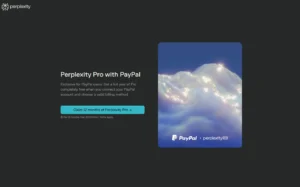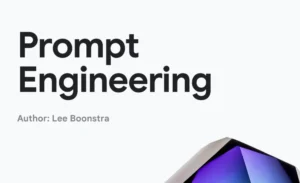6 Best AI-Powered Tools for AI Search Result Clustering
Remember when keyword clustering meant spending entire weekends manually sorting through endless lists? Those days are officially over. Now, with advanced AI doing the heavy lifting, you can transform chaotic keyword lists into strategic content clusters faster than you can say “search intent.” These best AI-powered tools for AI search result clustering bridge that gap between overwhelming data and actionable SEO strategy.
Keyword Insights
Keyword Insights stands out as the gold standard for AI-powered keyword clustering. This tool doesn’t just group keywords by similarity – it analyzes live SERP data to understand how Google actually sees these terms.
Key Features
The platform’s data-driven clustering approach sets it apart from competitors. Instead of relying on semantic analysis alone, Keyword Insights examines the top 10 search results for each keyword, identifying which URLs appear across multiple queries. This SERP-based methodology ensures your clusters reflect real-world search behavior.
Scalability is another major strength. While most tools max out around 15,000 keywords, Keyword Insights can process up to 200,000 keywords simultaneously. That’s enterprise-level capacity without enterprise-level complexity.
The comprehensive reporting feature provides metrics like average rank, search intent classification, traffic potential, and difficulty scores. You’re not just getting clusters – you’re getting actionable intelligence for each group.
Pricing
Plans start at $58 per month, with higher tiers reaching $299 monthly. They also offer a credit-based system at $7.99 per 1,000 keywords, which works well for occasional users.
Pros and Cons
Pros:
- SERP-based clustering for maximum accuracy
- Handles massive keyword lists
- Detailed competitive analysis features
- User-friendly interface
Cons:
- Higher price point than some alternatives
- Learning curve for advanced features
Best For
SEO agencies and enterprise teams who need accurate, large-scale keyword clustering with detailed competitive insights.
SE Ranking
SE Ranking brings flexible clustering accuracy settings to the table, letting you fine-tune how strict or loose your keyword grouping should be. This customization makes it perfect for different types of content strategies.
Key Features
The SERP-based grouping system analyzes search results to identify keyword relationships, similar to Keyword Insights but with more granular control. You can adjust the URL overlap threshold to create tighter or broader clusters depending on your needs.
Detailed cluster analysis provides insights into search volume, competition levels, and ranking opportunities for each group. The tool also integrates seamlessly with SE Ranking’s broader SEO platform, making it convenient if you’re already using their other tools.
Pricing
Monthly plans range from $55 to $239, plus additional costs for keyword queries. The clustering feature costs $0.004 per query, which can add up quickly for large projects.
Pros and Cons
Pros:
- Highly customizable clustering accuracy
- Integrates with full SEO suite
- Detailed performance metrics
- Good value for existing SE Ranking users
Cons:
- Pay-per-query pricing can get expensive
- Less intuitive than some competitors
- Limited standalone clustering features
Best For
SEO professionals already using SE Ranking who want integrated clustering capabilities with maximum customization control.
Useful Articles:
ClusterAI
ClusterAI focuses on semantic keyword clustering using advanced machine learning algorithms. This tool excels at understanding the deeper meaning behind keywords, not just surface-level similarities.
Key Features
The agglomerative algorithm approach creates more accurate clusters by analyzing semantic relationships between terms. This method is particularly effective for content marketing where understanding user intent matters more than exact keyword matching.
First-page result examination ensures clusters are based on what’s actually ranking, not just theoretical relationships. The tool claims to reduce keyword research time by 90%, which honestly isn’t far from the truth in our experience.
Pricing
Plans start at $39 per month for 1,000 keywords, making it one of the more affordable options for small to medium-sized projects.
Pros and Cons
Pros:
- Strong semantic analysis capabilities
- Affordable pricing structure
- Fast processing times
- Good for content-focused strategies
Cons:
- Limited customization options
- Smaller keyword capacity than premium tools
- Less detailed reporting
Best For
Content marketers and bloggers who prioritize semantic understanding over massive scale or detailed competitive analysis.
Now, let’s look at some tools that take different approaches to the clustering challenge.
Semrush
Semrush doesn’t just do clustering – it’s a complete SEO ecosystem with automated keyword clustering as one of many features. The clustering tool integrates seamlessly with their keyword research and competitive analysis tools.
Key Features
Automated keyword clustering analyzes both semantic similarity and SERP overlap to create balanced groups. The tool excels at identifying competitor keyword clusters, showing you exactly how your rivals organize their content strategy.
The content optimization features help you understand not just which keywords to group together, but how to actually use those clusters in your content. Real-time SERP analysis keeps your clusters current as search results evolve.
Pricing
Plans range from $129.95 to $499.95 per month, with annual discounts available. The clustering feature is included in all paid plans, making it good value if you need the full SEO suite.
Pros and Cons
Pros:
- Part of comprehensive SEO platform
- Excellent competitive analysis
- Regular data updates
- Strong integration with other tools
Cons:
- Expensive for clustering-only needs
- Can be overwhelming for beginners
- Limited customization for clustering specifically
Best For
SEO professionals and agencies who want clustering as part of a complete SEO toolkit, especially those focused on competitive analysis.
Surfer SEO
Surfer SEO approaches clustering through its Content Planner feature, focusing on topic cluster building rather than just keyword grouping. This content-first approach makes it unique in the clustering space.
Key Features
The cluster topic building feature uses primary keywords to create comprehensive topic maps. Instead of just grouping similar terms, Surfer helps you understand how to structure entire content campaigns around keyword clusters.
Predicted monthly search volume for each cluster helps with content prioritization. The tool also provides content optimization suggestions based on top-ranking pages for each cluster.
Pricing
Plans start at $59 per month, with content creation features available at higher tiers. The clustering functionality is included in the Content Planner, which requires at least the mid-tier plan.
Pros and Cons
Pros:
- Content-focused clustering approach
- Excellent for topic authority building
- Strong content optimization features
- Good integration with content creation workflow
Cons:
- Limited pure clustering functionality
- Requires higher-tier plans for full features
- More expensive than dedicated clustering tools
Best For
Content teams and SEO professionals who want to build comprehensive topic authority rather than just organize keywords.
Ahrefs
Ahrefs includes keyword clustering capabilities as part of its massive SEO toolkit. While not a dedicated clustering tool, it offers solid grouping features backed by one of the largest keyword databases in the industry.
Key Features
Machine learning algorithms group keywords based on semantic relevance and search intent. The tool’s strength lies in its massive keyword database and ability to identify content gaps through cluster analysis.
Competitive analysis features show you how competitors structure their keyword clusters, providing strategic insights for your own content planning. The content gap analysis identifies opportunities where your clusters might be missing valuable keywords.
Pricing
Plans start at $129 per month, making it one of the more expensive options. However, you’re getting access to Ahrefs’ entire SEO suite, not just clustering features.
Pros and Cons
Pros:
- Huge keyword database
- Excellent competitive analysis
- Reliable data quality
- Strong brand reputation
Cons:
- Expensive for clustering-only needs
- Limited clustering customization
- Complex interface for beginners
Best For
SEO professionals and agencies who need clustering as part of comprehensive keyword research and competitive analysis workflows.
Useful Articles:
Comparison Table
| Tool | Key Strength | Pricing | Keyword Capacity | Best For |
|---|---|---|---|---|
| Keyword Insights | SERP-based clustering | $58-$299/month | 200,000 keywords | Enterprise teams, agencies |
| SE Ranking | Customizable accuracy | $55-$239/month + per query | 15,000+ keywords | Existing SE Ranking users |
| ClusterAI | Semantic analysis | $39/month | 1,000 keywords | Content marketers, bloggers |
| Semrush | Complete SEO suite | $129.95-$499.95/month | 50,000+ keywords | Full-service SEO teams |
| Surfer SEO | Content-focused clustering | $59+/month | Variable | Content strategy teams |
| Ahrefs | Massive keyword database | $129+/month | 100,000+ keywords | Competitive analysis focus |
The best AI-powered tools for AI search result clustering each serve different needs and budgets. Keyword Insights leads for pure clustering power, while Semrush and Ahrefs excel when you need clustering as part of broader SEO strategies. For budget-conscious users, ClusterAI offers solid semantic analysis without breaking the bank.







